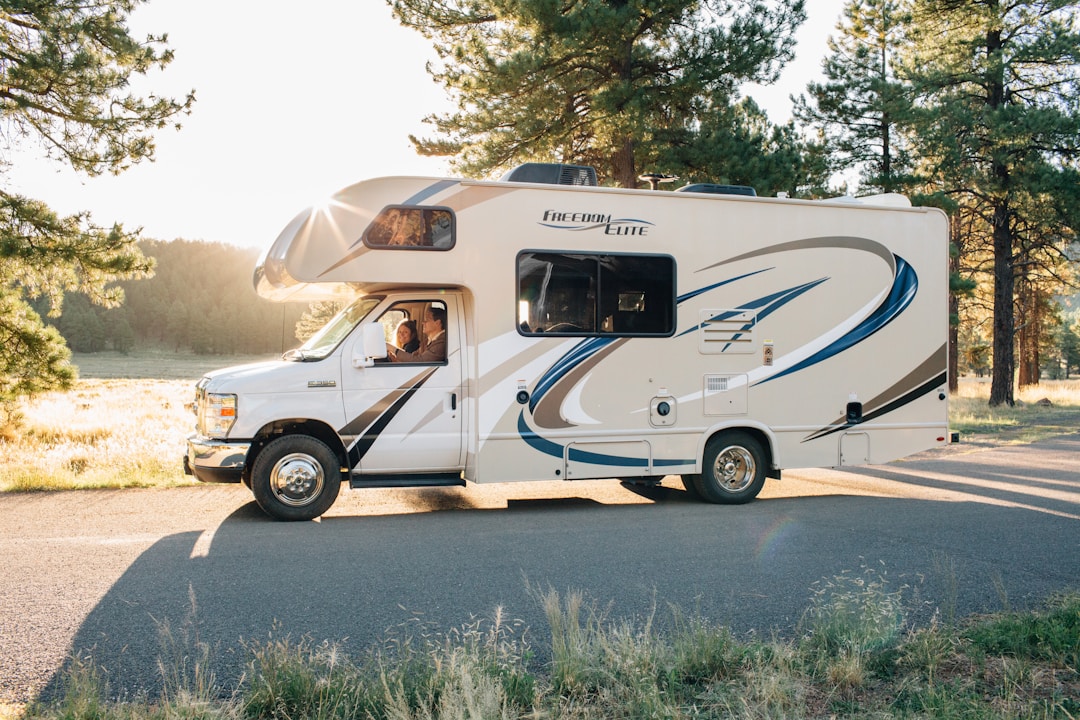Finding the best extended warranty for your RV doesn't have to be a vexing process. With the abundance of warranty providers in the market, it can be an overwhelming task to determine the perfect one for you. But fear not; this article is designed to navigate you through the process, ensuring that you are well informed and prepared to make a decision that suits your specific need. Keep reading as we unravel the mystery behind securing an RV warranty.
Understanding Extended Warranties

An extended RV warranty is a service agreement that covers the cost of certain repairs and problems after the original manufacturer's warranty expires. The specifics of what is covered vary between providers and plans, making it paramount to thoroughly understand your RV's essential needs and how a particular warranty plan will cater to these needs. Hence, equipping yourself with a basic understanding of the warranty landscape is the first step in securing the best RV extended warranty for your vehicle.
Bear in mind that an extended warranty is not an insurance policy, though they might seem similar in certain aspects. While insurance policies cover unpredictable events like accidents, theft, or damage from natural disasters, extended warranties are service plans that cover mechanical breakdowns and system failures.
An extended Rv warranty serves to shield you from unexpected costs associated with maintaining your RV's condition. It's like a safety net that ensures your budget remains intact in the face of unforeseen repair costs. Understanding extended warranties is a significant step in choosing the right one for your RV.
Assessing Your RV's Specific Needs

Just like how every RV owner has different needs and preferences, so do their respective RVs. By understanding specific elements such as the age of your RV, its make, model, and how often you use it, you can get a better idea of what kind of coverage you require. For instance, older RVs might benefit more from comprehensive plans due to higher chances of mechanical breakdown, whereas newer ones could do with basic coverage as they're still under the manufacturer's warranty.
Another important consideration is how you use your RV. If you're a full-time RVer, your vehicle might need more comprehensive coverage as you're likely to encounter more frequent use and wear and tear compared to a vacation RVer. Additionally, full-time RVers are inherently more dependent on their vehicles and therefore need sturdy coverage to prevent any disruption in their daily lives.
Evaluating Different Extended Warranty Providers

With several providers in the market, each with their unique offerings, it can be quite a task to pick out the one that best suits your needs. As such, you need to conduct comprehensive research on various providers, comparing what they offer, their reputation in the industry, and how their particular offerings can answer your needs. It is always advisable to go for providers with a strong standing in the industry. You can research business ratings from a resource like the Better Business Bureau to get an idea of how a provider does business.
Another key consideration is the provider's customer service. Remember, should a breakdown occur, you will need a warranty provider that responds promptly and professionally. Therefore, you might want to research customer reviews to get an idea of the provider's customer service.
Consulting Professionals and Fellow RV Owners
Consulting with professionals and fellow RV owners can enhance your understanding of extended warranties and the best providers out there. Speak to your mechanic or RV expert to understand the most common problems with your RV's make and model. This information will help determine the perfect warranty coverage for you. Professionals often have a broad knowledge base informed by years of handling various RVs, and their advice could be critical in your decision-making process.
Furthermore, interacting with fellow RV owners can provide real-life experiences and recommendations concerning extended warranties, the best providers, and their service delivery. You can find these interactions in online forums, social media groups, or local RV clubs. These conversations can illuminate gray areas and further contribute to your knowledge pool.
Remember, however, that your RV's needs are unique, and what worked for one RV owner might not necessarily work for you. Therefore, utilize these professional and peer insights to make a decision but keep your specific needs in mind.
Deciding the Appropriate Time to Purchase an Extended Warranty
Just like buying an insurance policy, the best time to purchase an extended warranty is when you don't immediately need it. Often, buying when your manufacturer's warranty is still valid can get you a better deal as your RV is still relatively new, and the risk of breakdowns is lower. However, do not feel rushed. Take your time to understand your RV's specific needs, evaluate various warranty providers, and only commit when you feel assured that you've found the best choice.
Another important factor to consider is the RV's usage. If you're a full-time RVer, it would be wise to purchase an extended warranty sooner rather than later due to the more frequent use of your vehicle. On the other hand, if you use your RV for occasional vacations, you can probably wait a bit longer before deciding to purchase an extended warranty.
Furthermore, understand that an extended warranty is not a one-time cost but a long-term investment. Ensure you can comfortably handle the premiums over the duration of the policy. As you make these considerations, you'll find the optimal time to invest in an extended warranty.
Understanding the Claims Process
Understanding the claims process is key, as it's what determines how quickly you can get your RV repaired and back on the road. Some providers facilitate direct payments to the repair shop, whereas others may require you to pay out-of-pocket first and then reimburse the amount later. Opt for a provider with a straightforward claims process with minimal inconvenience.
Moreover, consider the approval process for repairs and how quickly your provider processes claims. Fast approval processes mean less downtime for your RV, and that's always a win. Additionally, ensure your chosen provider has a broad service network so that wherever you are, you can get serviced conveniently.
Last but not least, enquire whether you can choose the repair shop or if you are limited to specific repair shops. Flexibility in selecting your preferred repair shop can be useful, especially if you trust your local repair shop or mechanic. Understanding the claims process can greatly influence your overall experience of an extended RV warranty.
The Importance of Regular Maintenance

Most warranties require that you keep up with scheduled maintenance and can void your agreement if this is not adhered to.
Regular maintenance not only keeps your RV in top shape but minimizes the chance of avoidable breakdowns, thus saving you money in the long run. It's always advisable to retain receipts and records to provide proof that regular maintenance was performed in case of a warranty claim.
Furthermore, you also need to factor in the cost of routine maintenance when considering an extended warranty. These costs are not covered under the warranty and are out-of-pocket expenses. So, you plan accordingly. Regularly maintaining your RV ensures that you fully enjoy the benefits of your RV extended warranty.
Overall, purchasing an RV extended warranty involves understanding what an extended warranty is, evaluating your RV's specific needs, scouting for the best providers, consulting with professionals and other RV owners, knowing when to purchase an RV extended warranty, and appreciating the importance of maintenance. Given how expensive some RV repairs can be, finding the best extended Rv warranty is essential. Remember, the goal is to find a warranty that offers you peace of mind on your journeys, knowing that should anything occur, you're covered.






